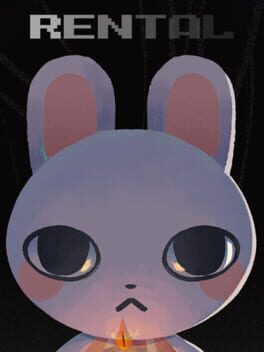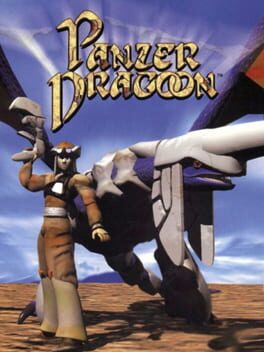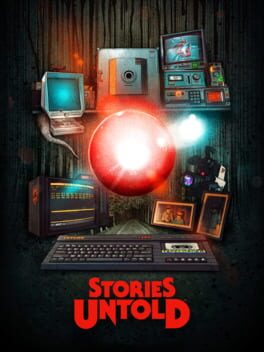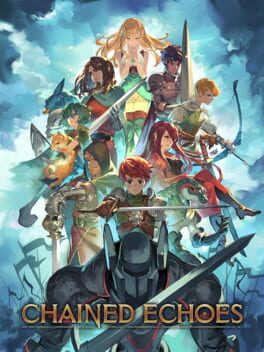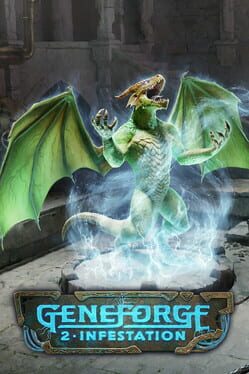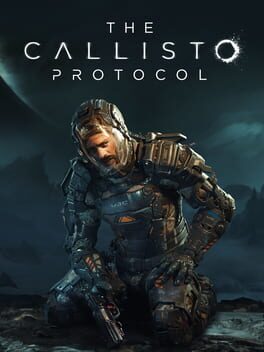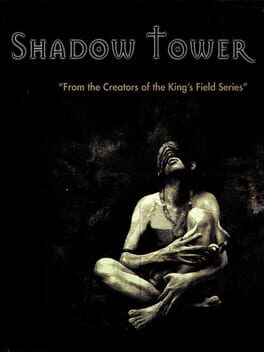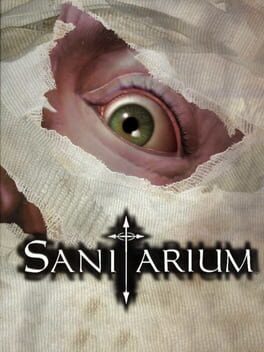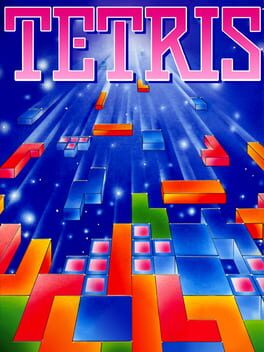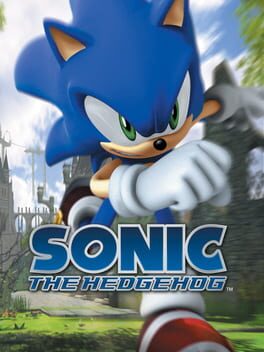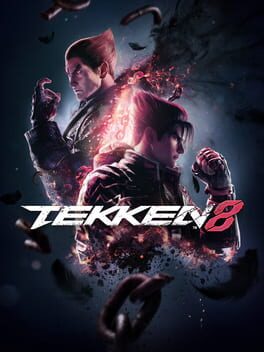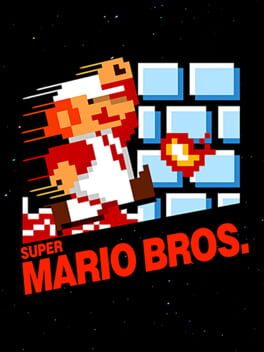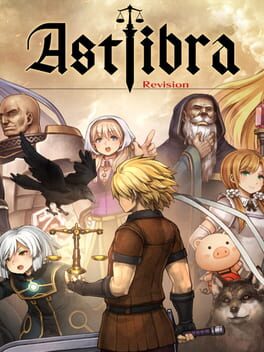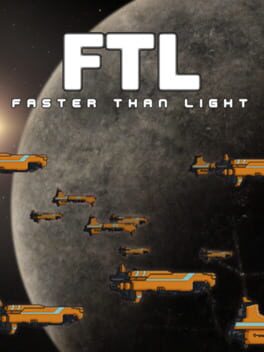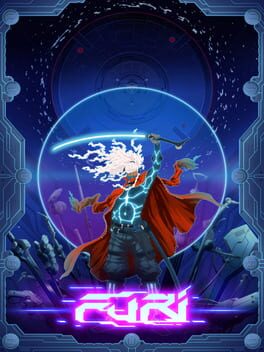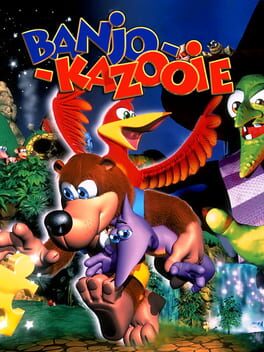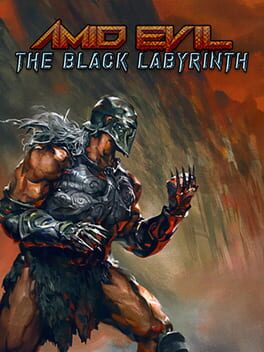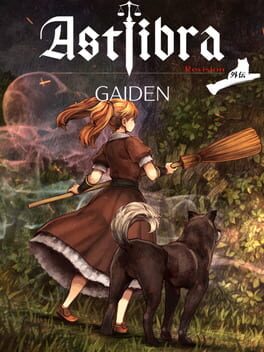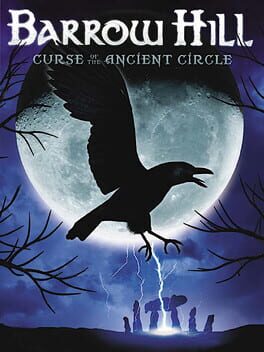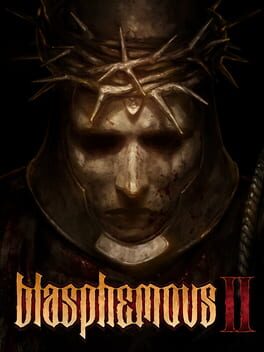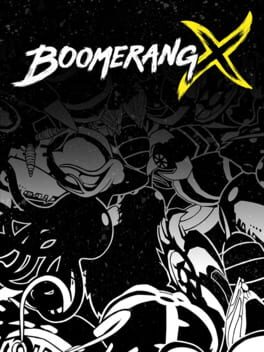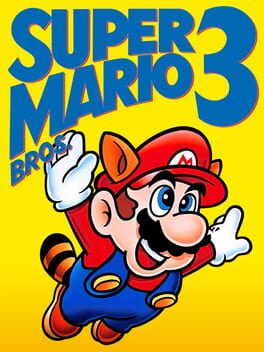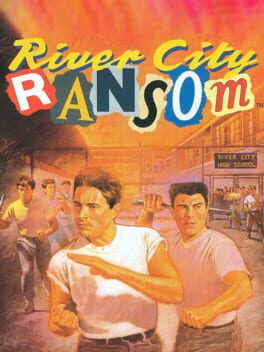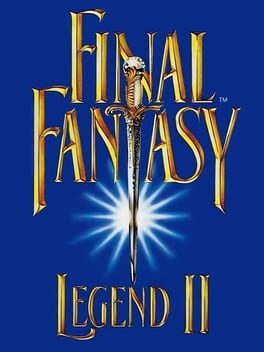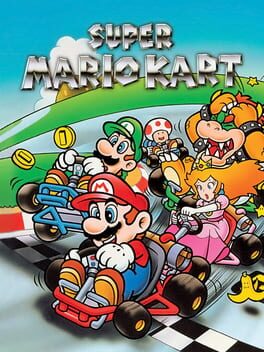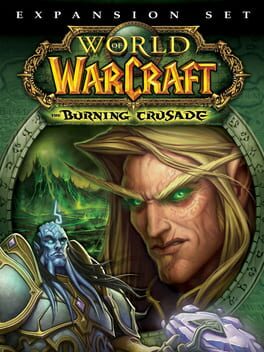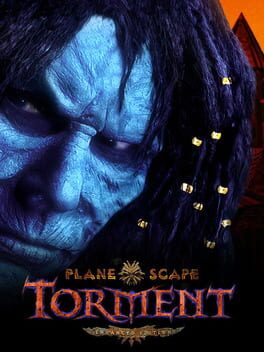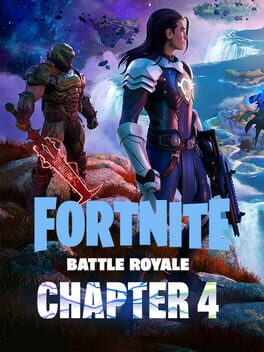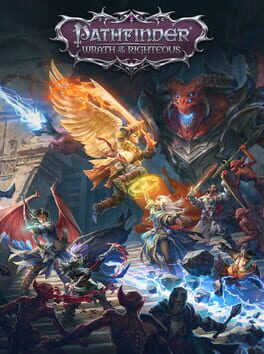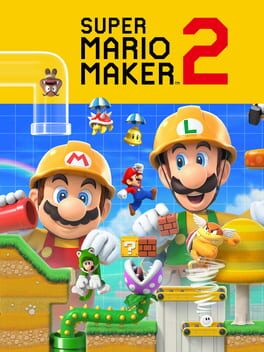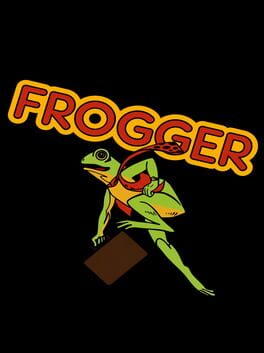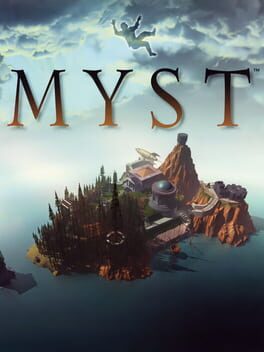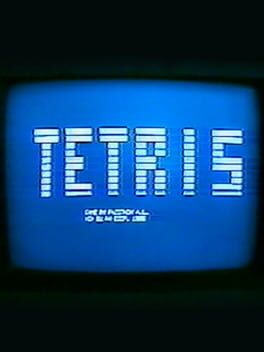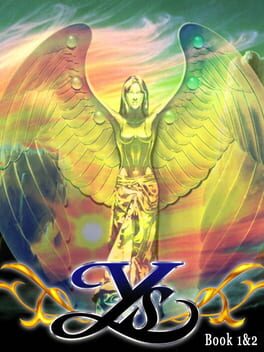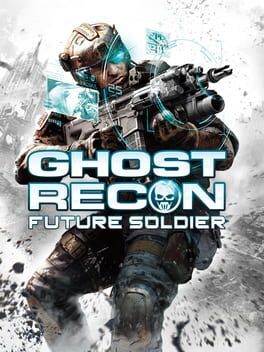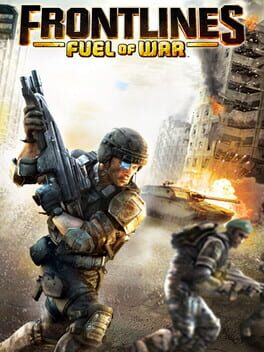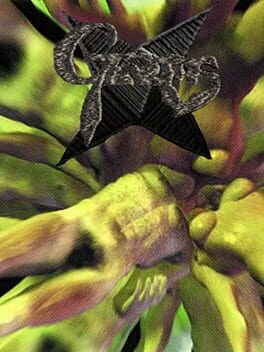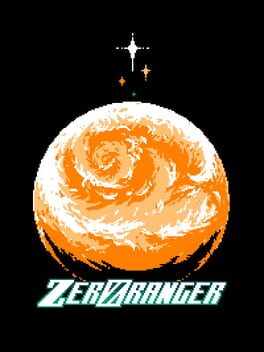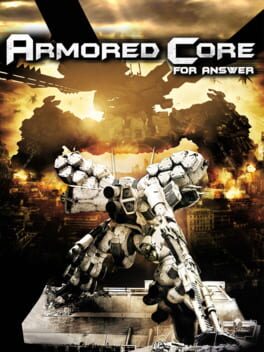rentheunclean
BACKER
638 reviews liked by rentheunclean
Rental
2022
Visually pretty, short little game jam project. Like most of it's kind, Rental is a little rough around the edges but the idea and presentation is strong, I kind of wish it was a full game- or at least extended somewhat with more structure- but that's how these event games usually tend to go. But otherwise, its pretty cute (and free), a perfectly harmless way to kill a few minutes.
Outer Wilds
2019
Pros:
+ perhaps the first true MetroidBrania ever created
+ smart inversion of the monomyth and tired video game clichés
+ unique open universe setting and visual style
+ fresh interpretation of the time loop concept
+ deep integration of gameplay, setting, and story
+ often ingenious, four-dimensional puzzle design
+ if something looks possible, it usually is (Sun Station!)
+ idiosyncratic translation mechanic and good writing
+ optional areas of the universe enrich the narrative
+ secret endings are surprising and often meta-textual
+ easter eggs at every corner, even on the startup screen
+ fitting soundtrack and sound design
+ incredible central track that is deeply interwoven with the gameplay
Cons:
- controls are iffy and take a lot of time getting used to
- hidden "meditation" mechanic should be available from the start
- not all gameplay elements are properly explained (e.g. the ship's emergency button)
- ship log could offer more hints after a certain time without progress
- a customizable note or marker system would eliminate issues with orientation
- CO2 meter is often just a bit too limiting
- character design is an acquired taste
- final loop is exciting but exceedingly difficult to pull of
- the final image and its implications are a bit cynical
Magic Moment(s): Too many to count. The first landing and gravity mechanics on Giant's Deep, the complex mechanics and secrets of the Quantum Moon, the tense moments during the final loop, the final musical sequence.
Verdict: Outer Wilds takes place in its own unique universe, far beyond the tired heroic clichés of the medium, and rewards intelligence and curiosity in fresh, exciting ways. The incredible team at Mobius Digital here not only (co-)invents the new genre of the MetroidBrania, but almost perfectly presents its vision of the possibilities of video games. To think that this is their first outing is almost unbelievable, as is the pure quality in all departments on display here. A true milestone in the history of gaming and a must play.
+ perhaps the first true MetroidBrania ever created
+ smart inversion of the monomyth and tired video game clichés
+ unique open universe setting and visual style
+ fresh interpretation of the time loop concept
+ deep integration of gameplay, setting, and story
+ often ingenious, four-dimensional puzzle design
+ if something looks possible, it usually is (Sun Station!)
+ idiosyncratic translation mechanic and good writing
+ optional areas of the universe enrich the narrative
+ secret endings are surprising and often meta-textual
+ easter eggs at every corner, even on the startup screen
+ fitting soundtrack and sound design
+ incredible central track that is deeply interwoven with the gameplay
Cons:
- controls are iffy and take a lot of time getting used to
- hidden "meditation" mechanic should be available from the start
- not all gameplay elements are properly explained (e.g. the ship's emergency button)
- ship log could offer more hints after a certain time without progress
- a customizable note or marker system would eliminate issues with orientation
- CO2 meter is often just a bit too limiting
- character design is an acquired taste
- final loop is exciting but exceedingly difficult to pull of
- the final image and its implications are a bit cynical
Magic Moment(s): Too many to count. The first landing and gravity mechanics on Giant's Deep, the complex mechanics and secrets of the Quantum Moon, the tense moments during the final loop, the final musical sequence.
Verdict: Outer Wilds takes place in its own unique universe, far beyond the tired heroic clichés of the medium, and rewards intelligence and curiosity in fresh, exciting ways. The incredible team at Mobius Digital here not only (co-)invents the new genre of the MetroidBrania, but almost perfectly presents its vision of the possibilities of video games. To think that this is their first outing is almost unbelievable, as is the pure quality in all departments on display here. A true milestone in the history of gaming and a must play.
Panzer Dragoon
1995
The first few minutes of Panzer Dragoon when your blue dragon majestically soars above the rippling water to the tune of Flight define a classic video game introduction that I doubt I will ever forget. A part of me expected the experience to be steadily downhill from there given the common complaints that I’ve heard, but to the game’s credit, it quickly established its defining hook and never let go. Panzer Dragoon was one of the first games to take total advantage of its 3D space, and it does so through its ability to rotate the player’s aim in 360 degrees. The catch is that while you can’t aim sideways/behind the dragon when looking forward, there’s a trade-off in that you can’t steer the dragon and change its mid-air position while in first-person aiming around the sides of/behind its body. As a result, there’s a precise science to swapping between these two camera modes. The macro never gets complex (shoot everything in sight while dodging and shooting down enemy attacks), but the micro is just involved enough to where there’s little downtime as you constantly peruse your surroundings and systematically pick off your foes. This is a game that wants the player to be aware of everything around them, and Team Andromeda was more than happy to let them soak in the sights given that the minimalist UI (simply consisting of a radar for spotting enemies and a player health bar) never really gets in the way. Even today, I find Panzer Dragoon to be an absolutely gorgeous game, and I can only imagine how people in 1995 felt playing this for the first time.
I’ve been warned that Panzer Dragoon’s difficulty can be a significant roadblock, but after a few playthroughs, I think it’s definitely conquerable. Besides mastering control of the player reticle/camera, players need to recognize when to utilize the homing laser lock-on (holding down the fire button) versus mashing to quickly fire the player’s handgun. The homing laser is great for getting rid of enemy swarms and easily targeting moving foes, while the handgun is a godsend for melting beefy mobs and bosses while sniping faraway targets that can’t be locked onto. In particular, Episode 3’s jumping ship boss is a notable chump check if you refuse to lock-on, while Episode 5’s airships will overwhelm you if you don’t mash. Additionally, I’ve also heard that Panzer Dragoon can feel very unforgiving since the player is allowed only one game-over before they have to restart a run, and the game only regenerates half of the player's health upon completing a level. However, given that the player can earn an extra credit per stage if they manage to shoot down more than 85% of the enemies in a single episode, I'd say there’s enough leeway given if the player takes the time to master its controls and meticulously defeat enough enemies instead of simply playing entirely defensive.
The only real gripe that I’d have is that enemy attacks sometimes blend into the background (ex: black cannonballs on top of dark environments) and can be tough to spot, especially when obscured by smoke effects from already defeated airships. I can still dodge most of these attacks with enough experience, having learning the enemy spawn positions, though it takes time to master given that players need to adapt to the game’s weightiness and natural response time. After all, you’re controlling a rider controlling a dragon rather than controlling the dragon itself, so it takes a bit more time to shift the model away from incoming barrages. As is, I’d still prefer if all enemy attacks were distinctly colored to stand out from both my own projectiles and the surroundings. Regardless, Panzer Dragoon was a breath of fresh air and I don’t mind its relative simplicity or brevity when it manages to succinctly capture an enthralling rail-shooting experience that I’ll gladly replay just to see myself visibly improve with every new run. All I can say is that this was certainly no flight of fancy; if the base model was this good, then I can’t wait to see what Team Andromeda/Smilebit have to offer with Zwei and Orta.
I’ve been warned that Panzer Dragoon’s difficulty can be a significant roadblock, but after a few playthroughs, I think it’s definitely conquerable. Besides mastering control of the player reticle/camera, players need to recognize when to utilize the homing laser lock-on (holding down the fire button) versus mashing to quickly fire the player’s handgun. The homing laser is great for getting rid of enemy swarms and easily targeting moving foes, while the handgun is a godsend for melting beefy mobs and bosses while sniping faraway targets that can’t be locked onto. In particular, Episode 3’s jumping ship boss is a notable chump check if you refuse to lock-on, while Episode 5’s airships will overwhelm you if you don’t mash. Additionally, I’ve also heard that Panzer Dragoon can feel very unforgiving since the player is allowed only one game-over before they have to restart a run, and the game only regenerates half of the player's health upon completing a level. However, given that the player can earn an extra credit per stage if they manage to shoot down more than 85% of the enemies in a single episode, I'd say there’s enough leeway given if the player takes the time to master its controls and meticulously defeat enough enemies instead of simply playing entirely defensive.
The only real gripe that I’d have is that enemy attacks sometimes blend into the background (ex: black cannonballs on top of dark environments) and can be tough to spot, especially when obscured by smoke effects from already defeated airships. I can still dodge most of these attacks with enough experience, having learning the enemy spawn positions, though it takes time to master given that players need to adapt to the game’s weightiness and natural response time. After all, you’re controlling a rider controlling a dragon rather than controlling the dragon itself, so it takes a bit more time to shift the model away from incoming barrages. As is, I’d still prefer if all enemy attacks were distinctly colored to stand out from both my own projectiles and the surroundings. Regardless, Panzer Dragoon was a breath of fresh air and I don’t mind its relative simplicity or brevity when it manages to succinctly capture an enthralling rail-shooting experience that I’ll gladly replay just to see myself visibly improve with every new run. All I can say is that this was certainly no flight of fancy; if the base model was this good, then I can’t wait to see what Team Andromeda/Smilebit have to offer with Zwei and Orta.
Stories Untold
2017
"Some horror compilation. Trash."
Oh, man. I said in my earlier review for Observation that I thought No Code had a serious shot at making a good Silent Hill game, and I meant it. After playing Stories Untold, I'm not so confident. The only saving grace here is that this is the older of the two works — Observation came out three years after Stories Untold, and it remains the most recent title they have out — but this is really bad. This is the psychological horror equivalent of when someone tries to guess what you're about to say before you've finished saying it, and they guess wrong. And that first wrong guess doesn't shame them enough for them to shut the fuck up, so they keep interrupting you with more guesses, and they keep getting it wrong. They don't have a clue what they're doing, like human autocomplete. The protagonist's repressed guilt over the murder of a loved one causes them to spiral deep into torment, going through a series of nightmarish trials where they — hold on a second, what did you say the protagonist's name was? James? Oh, No Code, Silent Hill 2 already handed me this assignment back in 2001. You copied off of Team Silent's homework, didn't you? No wonder Konami gave you the license; who better to hire for their long-running franchise than fangame developers?
It's not especially clear until you've got the benefit of hindsight from the following chapters, but the first act of the game started out as a standalone piece. It was not original to this, nor was it intended to be the start of the compilation; it was made for a Ludum Dare as its own self-contained work, and then forced into this as act one of the compilation. It's...not great, mechanically, but it spends most of its time setting up a story that promises to be interesting. The entire sequence is done as a text adventure, where the actual "text adventure" part is happening through an in-universe computer. The text parser is kind of shit. This section — the whole game, with its obvious Stranger Things trappings — is going for this late-80s style, yet the parser itself is dumber than anything that was coming out around that time. Forcing you to type "look around" rather than just "look" to get the layout of an area is a fairly obvious misfire, as is the obscenely slow crawling text that you have to re-read every single time you visit a room you've already been to. It's got a pretty limp ending, but everything up until then is at least neat. The lights flickering when you turn on the generator in the text adventure, the alarm clock blaring, the door swinging open; it's all very neat.
Act two kicks off with something that almost always engages me — fiddling around with unfamiliar machines — but every function of every device is given to you from the outset, along with their exact positions in the stack. You don't need to find anything nor experiment at all because it's all very clearly labeled and set out, and you're just following instructions as written. Turn the dial to 10, punch in a few numbers on this keypad, flip this switch. It all plays itself, which is an exceptionally boring way to handle a gameplay concept that I usually enjoy. I've played this exact game but better in Nauticrawl, in Unsorted Horror — this is just boring. It isn't long before the object you're experimenting on breaks free and starts strobing a red light in your face that you have to keep looking at to solve the final puzzle of the section. You just stare at it and it strobes a light at you with symbols in it and you reenter the symbols into a computer. I don't have epilepsy, but this seriously fucking hurt my eyes; I think anyone with photosensitivity might actually have a seizure off the back of this. It's ridiculous.
The third section is where things really take a headfirst dive into an empty swimming pool. What you're meant to be doing is simple — turn in to a radio frequency, get a code, cite the manual to find out what you do with that code — but the manual itself is provided on microfilm. Not an inherent issue, but Stories Untold refuses to ever give you a straight look at any of the computer monitors in the game, which means the monitor with the microfilm on it only takes up about a third of the screen. You can manually look closer in by holding down right mouse, but this doesn't help much. You can get the monitor to (mostly) fill the screen, but the actual important text is written in an incredibly tiny, smudgy font that makes it near impossible to tell what the fuck the actual instruction is. If you manage to accidentally stumble into the microfilm monitor's additional zoom function, your reward is that you can now tell what you're meant to be typing into the terminal without needing to squint at your screen. The tiny text serves as the only barrier for execution, and what's left serves instead to be pure, rote copying; punch in the not-Unix commands as written and hit enter. Repeat until credits. You're doing data entry while poorly-acted characters fake-shout in your ear about how confused they are in a tone like they're afraid they might wake their parents in the next room. This isn't tense. This is a day at the office. Actually, a day at the office is more tense, because it has stakes and isn't all just a coma dream.
Of course the final act reveal is that it was all a fucking dream. Jesus. What else could it be? What more were you expecting? James was in a coma all along because he got drunk, crashed his car, killed his sister, and then planted a whiskey bottle on the cop he crashed into. It's one of those reveals where they walk you back through every single hint they ever gave, and yeah, I suppose it makes sense, but that doesn't make it a satisfying conclusion. You know what I like in my horror stories? When they're all completely rational, completely based in reality, and completely justified to the audience before they end. I've long been an advocate for films inserting a ten-minute ENDING EXPLAINED video between the last shot of the movie and the credits, so I'm glad that No Code decided to oblige me and adopt this framework for their game.
When the credits roll, the "this is a work of fiction" disclaimer refers to this game as a "motion picture" rather than a game. I thought this was playing into the reveal that Stories Untold is meant to be a TV show in-universe, but the final credits of the game after our protagonist comes back to reality still call this a motion picture. It's literally the final paragraph of text before you're kicked back to the main menu. Mr. Cage is on the phone, and he's fucking pissed. He says someone's trying to tread on his territory.
The only real redeeming factor of this project is that it isn't the newest thing they've done. If I had played this before Observation, there isn't a chance I would have ever played that game. Let's just hope this is a single misstep in what's otherwise going to be a fruitful company history from here on out; if Observation was just a lucky fluke, Silent Hill Townfall will be an especially brutal failure.
Shooting for the Stranger Things aesthetic made this dated from the exact second it dropped.
Oh, man. I said in my earlier review for Observation that I thought No Code had a serious shot at making a good Silent Hill game, and I meant it. After playing Stories Untold, I'm not so confident. The only saving grace here is that this is the older of the two works — Observation came out three years after Stories Untold, and it remains the most recent title they have out — but this is really bad. This is the psychological horror equivalent of when someone tries to guess what you're about to say before you've finished saying it, and they guess wrong. And that first wrong guess doesn't shame them enough for them to shut the fuck up, so they keep interrupting you with more guesses, and they keep getting it wrong. They don't have a clue what they're doing, like human autocomplete. The protagonist's repressed guilt over the murder of a loved one causes them to spiral deep into torment, going through a series of nightmarish trials where they — hold on a second, what did you say the protagonist's name was? James? Oh, No Code, Silent Hill 2 already handed me this assignment back in 2001. You copied off of Team Silent's homework, didn't you? No wonder Konami gave you the license; who better to hire for their long-running franchise than fangame developers?
It's not especially clear until you've got the benefit of hindsight from the following chapters, but the first act of the game started out as a standalone piece. It was not original to this, nor was it intended to be the start of the compilation; it was made for a Ludum Dare as its own self-contained work, and then forced into this as act one of the compilation. It's...not great, mechanically, but it spends most of its time setting up a story that promises to be interesting. The entire sequence is done as a text adventure, where the actual "text adventure" part is happening through an in-universe computer. The text parser is kind of shit. This section — the whole game, with its obvious Stranger Things trappings — is going for this late-80s style, yet the parser itself is dumber than anything that was coming out around that time. Forcing you to type "look around" rather than just "look" to get the layout of an area is a fairly obvious misfire, as is the obscenely slow crawling text that you have to re-read every single time you visit a room you've already been to. It's got a pretty limp ending, but everything up until then is at least neat. The lights flickering when you turn on the generator in the text adventure, the alarm clock blaring, the door swinging open; it's all very neat.
Act two kicks off with something that almost always engages me — fiddling around with unfamiliar machines — but every function of every device is given to you from the outset, along with their exact positions in the stack. You don't need to find anything nor experiment at all because it's all very clearly labeled and set out, and you're just following instructions as written. Turn the dial to 10, punch in a few numbers on this keypad, flip this switch. It all plays itself, which is an exceptionally boring way to handle a gameplay concept that I usually enjoy. I've played this exact game but better in Nauticrawl, in Unsorted Horror — this is just boring. It isn't long before the object you're experimenting on breaks free and starts strobing a red light in your face that you have to keep looking at to solve the final puzzle of the section. You just stare at it and it strobes a light at you with symbols in it and you reenter the symbols into a computer. I don't have epilepsy, but this seriously fucking hurt my eyes; I think anyone with photosensitivity might actually have a seizure off the back of this. It's ridiculous.
The third section is where things really take a headfirst dive into an empty swimming pool. What you're meant to be doing is simple — turn in to a radio frequency, get a code, cite the manual to find out what you do with that code — but the manual itself is provided on microfilm. Not an inherent issue, but Stories Untold refuses to ever give you a straight look at any of the computer monitors in the game, which means the monitor with the microfilm on it only takes up about a third of the screen. You can manually look closer in by holding down right mouse, but this doesn't help much. You can get the monitor to (mostly) fill the screen, but the actual important text is written in an incredibly tiny, smudgy font that makes it near impossible to tell what the fuck the actual instruction is. If you manage to accidentally stumble into the microfilm monitor's additional zoom function, your reward is that you can now tell what you're meant to be typing into the terminal without needing to squint at your screen. The tiny text serves as the only barrier for execution, and what's left serves instead to be pure, rote copying; punch in the not-Unix commands as written and hit enter. Repeat until credits. You're doing data entry while poorly-acted characters fake-shout in your ear about how confused they are in a tone like they're afraid they might wake their parents in the next room. This isn't tense. This is a day at the office. Actually, a day at the office is more tense, because it has stakes and isn't all just a coma dream.
Of course the final act reveal is that it was all a fucking dream. Jesus. What else could it be? What more were you expecting? James was in a coma all along because he got drunk, crashed his car, killed his sister, and then planted a whiskey bottle on the cop he crashed into. It's one of those reveals where they walk you back through every single hint they ever gave, and yeah, I suppose it makes sense, but that doesn't make it a satisfying conclusion. You know what I like in my horror stories? When they're all completely rational, completely based in reality, and completely justified to the audience before they end. I've long been an advocate for films inserting a ten-minute ENDING EXPLAINED video between the last shot of the movie and the credits, so I'm glad that No Code decided to oblige me and adopt this framework for their game.
When the credits roll, the "this is a work of fiction" disclaimer refers to this game as a "motion picture" rather than a game. I thought this was playing into the reveal that Stories Untold is meant to be a TV show in-universe, but the final credits of the game after our protagonist comes back to reality still call this a motion picture. It's literally the final paragraph of text before you're kicked back to the main menu. Mr. Cage is on the phone, and he's fucking pissed. He says someone's trying to tread on his territory.
The only real redeeming factor of this project is that it isn't the newest thing they've done. If I had played this before Observation, there isn't a chance I would have ever played that game. Let's just hope this is a single misstep in what's otherwise going to be a fruitful company history from here on out; if Observation was just a lucky fluke, Silent Hill Townfall will be an especially brutal failure.
Shooting for the Stranger Things aesthetic made this dated from the exact second it dropped.
Chained Echoes
2022
This was pretty disappointing. Sure the game is impressive for being done by a simple person but that doesn't really help when it is not that enjoyable to play. At its core Chained Echoes is a beautiful and great sounding turn based JRPG with an intriguing world. But there are so many unnecessary subsystems tacked on in terms of party composition and battle it devolves into tedium quickly. The overdrive system would be a fun boss gimmick but as a constant companion it makes random battles a slog. Crystals and equipment upgrades are not really interesting and just serve to bloat the inventary and introduce way too much menuing. Sienna is cool, the rest of the cast pretty bland and the plot felt held back by a stiff script. Overall the game could have used some editing in multiple places to make it shine since there is some great potential hidden within. I'll at least keep an eye out for the developer's next project.
It’s okay when FromSoft does it.
Sekiro is guilty of everything that its staunchest defenders attack other games for. An unforgivably bad camera, bosses with surprise second phases, dreadfully simple and overpowered parrying, a near-complete lack of depth both artistically and mechanically, and a thematic retread of what the studio has been doing for fifteen years now all culminates to create something that can peak at the heights of interesting but mostly just lingers in the trenches of bland.
I knew that I wasn’t going to like Sekiro about an hour into it, but I also knew that it would be incredibly easy for someone to point out that I'm a quitter and say that I just didn’t like it because I was bad at the game. You get that a lot, with FromSoft’s titles: the implication being that the difficulty is the sole reason why anyone could ever dislike it. Set aside the red-headed stepchildren that are titles like Dark Souls II and Dark Souls III, where the premier Soulsheads are often pretty harsh on them, and look instead to the darlings like Bloodborne, and Elden Ring, and Sekiro. There are a certain amount of criticisms that you’re allowed to make — farming for blood vials or spirit emblems is boring, certain builds or weapons are imbalanced compared to others — but start pointing out flaws in the underlying systems themselves, and watch the wagons get circled as you’re told that you just need to git gud to appreciate them. I’ll outline what I disliked about the game itself in a bit, but all of this preamble is required to explain why I felt so compelled to finish Sekiro, in the hopes that it’d allow me to speak with some degree of authority.
I have to wonder if Hidetaka Miyazaki ever feels like Victor Frankenstein looking at the monster he's created. The ethos of the earliest Souls games were largely about strangers coming together to overcome the challenges imposed by the brutal and uncaring world they inhabited. Miyazaki famously said that he was inspired by an icy road on a hill that he needed a stranger's help to get over, and that he himself also helped a stranger get over; it was "a connection of mutual assistance between transient people", he said, because he couldn't stick around to thank them or else he'd get stuck again. This laid the foundations not just for the jolly co-operation summons of the original Dark Souls, but certainly reflected players on a more meta level, as well. We're all transient people to one another online, and we'll talk about these games for tips and guides and then dip out to take on the challenges with new information, often to never hear from the other players again. We get what we can and give what we're able.
Yet there's been an inarguable change, I feel, in the way that fans of the newest games talk about them. The seeds were certainly first sown with the whole "PREPARE TO DIE" garbage from the western Dark Souls marketing campaign, but there's been a marked shift in the way that people discuss these games. Complain that it's too hard, and you'll now immediately be met with derision instead of advice: well, you're just bad, you need to git gud, you just don't get it. God help you if you decide to drop the game because you're not having fun. There's no faster way to prove that you're a casual who hasn't earned the right to talk about it. Sekiro discussion in particular is especially noxious, with the community that exists today largely believing that anyone who has any complaints whatsoever is just mad because bad. Even if you beat the game, complaining about it is unjustified because you're actually still bad. If you were good, you would have liked it. Your complaints are because you're bad, thus they're invalid; any praise must then be because you're good, and thus valid. I complained about the shitty camera to a friend and he immediately shot back that it was my fault for being near a wall, and that it's actually intended behavior for it to fuck up near terrain because it'll push clever players to the middle of rooms where they'll be safer. This is the level of discourse we're operating at here. A decade and a half of making these third-person action-adventure games and they still can't fix the fucking cameras, but it's actually because they're playing 4D chess against the player. Can you imagine anything else getting this much leniency?
The camera is really the thing I want to hammer home as the worst element here, because it alone has killed me more than any other enemy in the game. I don’t know how FromSoft still haven’t figured this out. I intentionally sped through most of the game, skipping a lot of the optional content primarily just because I wanted to roll credits, and even most of the mandatory bosses introduced new problems with the camera. Guardian Ape would throw me into a wall that the camera couldn’t phase through, which meant that it tried to go for a birds-eye view and got me killed because I couldn’t see what was happening in time to block the follow-up; Summoner Monk similarly backed me into a wall and brought us both so close to the camera that our models turned invisible and I had to guess what the pattern was, effectively with my eyes closed; Sword Saint Isshin’s Phase 2 jumping attack would break the lock-on whenever I dodged under it, because the camera couldn’t keep up with where he was going. Mini-bosses like the Lone Shadow Longswordsman and the Lone Shadow Vilehand would similarly eat the camera with some of their dashing moves, and bounding off the head of the latter after dodging his sweep caused the camera to get stuck in the ceiling so hard that it started flashing Electric Soldier Porygon at me for a few seconds until it freed itself. It’s so blatantly wrong that I’m astonished both that it made it to production in the state that it’s in and that it isn’t a complete dealbreaker for significantly more people than it is.
I mentioned to another friend that I was having some trouble with Owl and that I was going to call it quits for the night there, and he excitedly mentioned that Owl had his favorite boss theme in the game. It was at this exact moment that I realized that I couldn’t actually recall a single track from the entire ten or so hours I had played up to that point. Even after rolling credits, I still don’t remember anything aside from the fact that I thought Divine Dragon had a cool theme. Music is constantly playing over every sequence of the game, ambient tracks and combat tracks alike; if you aggro an enemy, kill them, and then immediately aggro another, the combat track will start, fade out, and then start from the beginning again. Moving through an area to quickly cut down enemies who don’t alert the others when they aggro can make the combat track start itself over what I managed to get about five times in a row. It’s kind of funny in how sloppy it is.
The narrative is dreck, of course, and I doubt anyone was expecting much different. It’s the same story FromSoft has been telling for years now — unnatural life and resurrection, it’s all cyclical, you can choose to either break the cycle or keep it going, blah blah blah — with the added twist of “honor culture is actually dishonorable”, which has been massively oversaturated for longer than anyone reading this has been alive, and Sekiro has absolutely nothing interesting to add to the conversation. It’s certainly present. Owl shows up after seemingly dying, decides to be evil, actually dies unceremoniously, and the game just kind of moves along without really being interested in how or why any of that happened. I’ve seen praise for the story, and I can’t honestly believe that anyone is cheering this on. This is the fourth time FromSoft has shown that time is a flat circle in class, and the irony of how they keep doing it over and over again is really kind of giving me a kick as I type it out. You certainly can’t say they don’t believe in it.
Souls combat was never mechanically deep, but made up for it predominately just by giving you a lot of options. Sekiro throws this out in favor of exclusively allowing the player to play as a squishy, dex-based katana-wielder who dies in two hits on a good day and has to perfect parry the world or be crushed beneath it. I respect, in a way, the sheer commitment to this singular playstyle, but I also don’t think there’s any depth here to actually make me want to play this over any other similar action game. You get a parry and you get some basic sword swings, and if you’re a really good boy, you get to do Ichimonji Double. The actual parrying itself is ridiculously forgiving, and you’ll just end up psyching yourself out if you read online that spamming it will reduce your parry window to about seven frames; it’s active for so long and you’re actionable again so quickly after you use it that you’re in no real danger so long as you just keep hammering away at L1 fast enough. The fact that this got a port for the Stadia — with its inherent input lag that you can count in geologic time — should indicate how core these so-called “strict reaction times” actually are. What you’re left with once you get past that mental barrier is a game where you hit R1 until orange sparks fly, hit L1 until orange sparks stop flying, and then repeat the process from the start. When the kanji for danger occasionally appears, you get to hit either the jump button or the dash button. It is fucking boring. I managed to no-hit all three phases of Isshin not because I had downloaded him and completely figured out a perfect counter for every single one of his combos, but because his AI broke and he kept spamming the thrust attack in Phase 2 and the lightning sweep in Phase 3. I was getting rolled before that, because he was actually using his entire arsenal. I didn’t outskill him, I just got lucky that he kept picking the exact same attack over and over again. It’s like I got double-perfected by a world-class Zangief player and then in game two he just sat in neutral and spammed SPD. Sure, I’ll take the win, but it’s not because I earned it. I didn’t win, he just lost. Sekiro occupies an incredibly awkward middle ground between something slow and simple like Dark Souls and something fast and complex like Devil May Cry or Bayonetta. The game is instead fast and simple, and I can’t think of anything that is less for me.
Speaking of, I think FromSoft has indicated with their last few releases that they’re no longer interested in catering to players like me. That’s fine. I say this with my teeth gritted and steam coming out of my ears, but, really, it is fine. They’ve clearly found a new audience who loves them dearly, and every new game they put out sells millions of copies and sweeps the Game of the Year awards from every publication giving them out. This beat Death Stranding and Resident Evil 2 at The Game Awards! It’s the fifth highest-rated game on Backloggd of all time! It’s sold over ten million copies as of September of this year! Clearly I’m the odd man out, here. What use is it even to complain? What reason would they have to listen?
I’ve been getting this sort-of old man doom sense lately — not just for game discussion, mind, but for a lot of things — about how saying what you feel about something doesn’t actually accomplish anything if you’re not in a position of power to change it. It’s got a purpose to just let others know how you feel about any given topic, but what does it actually do? If I find a group of like-minded individuals who think I nailed it with this review and agree that FromSoft ought to return to the good old days where they made shitty, clunky games that launched blatantly unfinished, what does that accomplish? If a group of Sekiro fans come in and dunk on me for just not understanding the game, what does that accomplish? I put myself through the ringer beating a twenty hour-long game that I hated, and for what? So that I’d be more credible when I said it was a pile of shit? What does that accomplish, then, when someone comes in and says that beating the game doesn’t mean anything and I’m still bad and that’s the only reason I hated it? Without anyone involved actually being in a position to change anything, what use is discussing it at all?
A large part of what bothers me is that I don't feel I've really gotten anything I value from my time with Sekiro. It's not just because of the difficulty; I do plenty of difficult things, play plenty of difficult games, and it's all given me something I value. Every piece I write makes me feel like I'm a little bit better at writing, and it helps me appreciate the writing of others more. Every fighting game I play tends to have wildly differing mechanics between them, but the fundamentals of squaring off against another player are transferable. Every song I compose makes me feel like I've got a deeper understanding of music. What I get from playing Sekiro is that I'm now better at Sekiro, which is a game I have no desire to ever touch again. There's hardly anything that plays quite like this — which is a massive point of support for those who love it — so I may as well have gotten nothing for all my time spent. There's nothing wrong with what I'll affectionately call "junk media", where there's no value to the piece besides what you feel in the exact moments where you're actively experiencing it, but you'd hope that what you feel is a sense of fun or reward. I felt neither from Sekiro. I thought it was boring, and it didn't give me anything I value. I could have gone to work and felt equally bored and unfulfilled, but at least work pays me.
It’s telling that the parts that I thought were most interesting — the Divine Dragon, the Armored Knight — are the parts that either go completely overlooked or disparaged by the broader fanbase. There’s a clear disconnect between me, this game, and everyone else. People all over the place online said to keep playing until the combat clicks, and that’s when you start having fun. I felt the combat click, and I felt bored. People said to play until Genichiro before you say you don’t like it, and I beat Genichiro and was still bored. People said you can’t call the game bad if you haven’t beaten it, and I have, and I still think it’s bad. Do I have the right to dislike it yet, or is there still something that I’ve missed?
Seeing a monkey in a conical hat firing a rifle was almost enough for me to justify giving this five stars.
Sekiro is guilty of everything that its staunchest defenders attack other games for. An unforgivably bad camera, bosses with surprise second phases, dreadfully simple and overpowered parrying, a near-complete lack of depth both artistically and mechanically, and a thematic retread of what the studio has been doing for fifteen years now all culminates to create something that can peak at the heights of interesting but mostly just lingers in the trenches of bland.
I knew that I wasn’t going to like Sekiro about an hour into it, but I also knew that it would be incredibly easy for someone to point out that I'm a quitter and say that I just didn’t like it because I was bad at the game. You get that a lot, with FromSoft’s titles: the implication being that the difficulty is the sole reason why anyone could ever dislike it. Set aside the red-headed stepchildren that are titles like Dark Souls II and Dark Souls III, where the premier Soulsheads are often pretty harsh on them, and look instead to the darlings like Bloodborne, and Elden Ring, and Sekiro. There are a certain amount of criticisms that you’re allowed to make — farming for blood vials or spirit emblems is boring, certain builds or weapons are imbalanced compared to others — but start pointing out flaws in the underlying systems themselves, and watch the wagons get circled as you’re told that you just need to git gud to appreciate them. I’ll outline what I disliked about the game itself in a bit, but all of this preamble is required to explain why I felt so compelled to finish Sekiro, in the hopes that it’d allow me to speak with some degree of authority.
I have to wonder if Hidetaka Miyazaki ever feels like Victor Frankenstein looking at the monster he's created. The ethos of the earliest Souls games were largely about strangers coming together to overcome the challenges imposed by the brutal and uncaring world they inhabited. Miyazaki famously said that he was inspired by an icy road on a hill that he needed a stranger's help to get over, and that he himself also helped a stranger get over; it was "a connection of mutual assistance between transient people", he said, because he couldn't stick around to thank them or else he'd get stuck again. This laid the foundations not just for the jolly co-operation summons of the original Dark Souls, but certainly reflected players on a more meta level, as well. We're all transient people to one another online, and we'll talk about these games for tips and guides and then dip out to take on the challenges with new information, often to never hear from the other players again. We get what we can and give what we're able.
Yet there's been an inarguable change, I feel, in the way that fans of the newest games talk about them. The seeds were certainly first sown with the whole "PREPARE TO DIE" garbage from the western Dark Souls marketing campaign, but there's been a marked shift in the way that people discuss these games. Complain that it's too hard, and you'll now immediately be met with derision instead of advice: well, you're just bad, you need to git gud, you just don't get it. God help you if you decide to drop the game because you're not having fun. There's no faster way to prove that you're a casual who hasn't earned the right to talk about it. Sekiro discussion in particular is especially noxious, with the community that exists today largely believing that anyone who has any complaints whatsoever is just mad because bad. Even if you beat the game, complaining about it is unjustified because you're actually still bad. If you were good, you would have liked it. Your complaints are because you're bad, thus they're invalid; any praise must then be because you're good, and thus valid. I complained about the shitty camera to a friend and he immediately shot back that it was my fault for being near a wall, and that it's actually intended behavior for it to fuck up near terrain because it'll push clever players to the middle of rooms where they'll be safer. This is the level of discourse we're operating at here. A decade and a half of making these third-person action-adventure games and they still can't fix the fucking cameras, but it's actually because they're playing 4D chess against the player. Can you imagine anything else getting this much leniency?
The camera is really the thing I want to hammer home as the worst element here, because it alone has killed me more than any other enemy in the game. I don’t know how FromSoft still haven’t figured this out. I intentionally sped through most of the game, skipping a lot of the optional content primarily just because I wanted to roll credits, and even most of the mandatory bosses introduced new problems with the camera. Guardian Ape would throw me into a wall that the camera couldn’t phase through, which meant that it tried to go for a birds-eye view and got me killed because I couldn’t see what was happening in time to block the follow-up; Summoner Monk similarly backed me into a wall and brought us both so close to the camera that our models turned invisible and I had to guess what the pattern was, effectively with my eyes closed; Sword Saint Isshin’s Phase 2 jumping attack would break the lock-on whenever I dodged under it, because the camera couldn’t keep up with where he was going. Mini-bosses like the Lone Shadow Longswordsman and the Lone Shadow Vilehand would similarly eat the camera with some of their dashing moves, and bounding off the head of the latter after dodging his sweep caused the camera to get stuck in the ceiling so hard that it started flashing Electric Soldier Porygon at me for a few seconds until it freed itself. It’s so blatantly wrong that I’m astonished both that it made it to production in the state that it’s in and that it isn’t a complete dealbreaker for significantly more people than it is.
I mentioned to another friend that I was having some trouble with Owl and that I was going to call it quits for the night there, and he excitedly mentioned that Owl had his favorite boss theme in the game. It was at this exact moment that I realized that I couldn’t actually recall a single track from the entire ten or so hours I had played up to that point. Even after rolling credits, I still don’t remember anything aside from the fact that I thought Divine Dragon had a cool theme. Music is constantly playing over every sequence of the game, ambient tracks and combat tracks alike; if you aggro an enemy, kill them, and then immediately aggro another, the combat track will start, fade out, and then start from the beginning again. Moving through an area to quickly cut down enemies who don’t alert the others when they aggro can make the combat track start itself over what I managed to get about five times in a row. It’s kind of funny in how sloppy it is.
The narrative is dreck, of course, and I doubt anyone was expecting much different. It’s the same story FromSoft has been telling for years now — unnatural life and resurrection, it’s all cyclical, you can choose to either break the cycle or keep it going, blah blah blah — with the added twist of “honor culture is actually dishonorable”, which has been massively oversaturated for longer than anyone reading this has been alive, and Sekiro has absolutely nothing interesting to add to the conversation. It’s certainly present. Owl shows up after seemingly dying, decides to be evil, actually dies unceremoniously, and the game just kind of moves along without really being interested in how or why any of that happened. I’ve seen praise for the story, and I can’t honestly believe that anyone is cheering this on. This is the fourth time FromSoft has shown that time is a flat circle in class, and the irony of how they keep doing it over and over again is really kind of giving me a kick as I type it out. You certainly can’t say they don’t believe in it.
Souls combat was never mechanically deep, but made up for it predominately just by giving you a lot of options. Sekiro throws this out in favor of exclusively allowing the player to play as a squishy, dex-based katana-wielder who dies in two hits on a good day and has to perfect parry the world or be crushed beneath it. I respect, in a way, the sheer commitment to this singular playstyle, but I also don’t think there’s any depth here to actually make me want to play this over any other similar action game. You get a parry and you get some basic sword swings, and if you’re a really good boy, you get to do Ichimonji Double. The actual parrying itself is ridiculously forgiving, and you’ll just end up psyching yourself out if you read online that spamming it will reduce your parry window to about seven frames; it’s active for so long and you’re actionable again so quickly after you use it that you’re in no real danger so long as you just keep hammering away at L1 fast enough. The fact that this got a port for the Stadia — with its inherent input lag that you can count in geologic time — should indicate how core these so-called “strict reaction times” actually are. What you’re left with once you get past that mental barrier is a game where you hit R1 until orange sparks fly, hit L1 until orange sparks stop flying, and then repeat the process from the start. When the kanji for danger occasionally appears, you get to hit either the jump button or the dash button. It is fucking boring. I managed to no-hit all three phases of Isshin not because I had downloaded him and completely figured out a perfect counter for every single one of his combos, but because his AI broke and he kept spamming the thrust attack in Phase 2 and the lightning sweep in Phase 3. I was getting rolled before that, because he was actually using his entire arsenal. I didn’t outskill him, I just got lucky that he kept picking the exact same attack over and over again. It’s like I got double-perfected by a world-class Zangief player and then in game two he just sat in neutral and spammed SPD. Sure, I’ll take the win, but it’s not because I earned it. I didn’t win, he just lost. Sekiro occupies an incredibly awkward middle ground between something slow and simple like Dark Souls and something fast and complex like Devil May Cry or Bayonetta. The game is instead fast and simple, and I can’t think of anything that is less for me.
Speaking of, I think FromSoft has indicated with their last few releases that they’re no longer interested in catering to players like me. That’s fine. I say this with my teeth gritted and steam coming out of my ears, but, really, it is fine. They’ve clearly found a new audience who loves them dearly, and every new game they put out sells millions of copies and sweeps the Game of the Year awards from every publication giving them out. This beat Death Stranding and Resident Evil 2 at The Game Awards! It’s the fifth highest-rated game on Backloggd of all time! It’s sold over ten million copies as of September of this year! Clearly I’m the odd man out, here. What use is it even to complain? What reason would they have to listen?
I’ve been getting this sort-of old man doom sense lately — not just for game discussion, mind, but for a lot of things — about how saying what you feel about something doesn’t actually accomplish anything if you’re not in a position of power to change it. It’s got a purpose to just let others know how you feel about any given topic, but what does it actually do? If I find a group of like-minded individuals who think I nailed it with this review and agree that FromSoft ought to return to the good old days where they made shitty, clunky games that launched blatantly unfinished, what does that accomplish? If a group of Sekiro fans come in and dunk on me for just not understanding the game, what does that accomplish? I put myself through the ringer beating a twenty hour-long game that I hated, and for what? So that I’d be more credible when I said it was a pile of shit? What does that accomplish, then, when someone comes in and says that beating the game doesn’t mean anything and I’m still bad and that’s the only reason I hated it? Without anyone involved actually being in a position to change anything, what use is discussing it at all?
A large part of what bothers me is that I don't feel I've really gotten anything I value from my time with Sekiro. It's not just because of the difficulty; I do plenty of difficult things, play plenty of difficult games, and it's all given me something I value. Every piece I write makes me feel like I'm a little bit better at writing, and it helps me appreciate the writing of others more. Every fighting game I play tends to have wildly differing mechanics between them, but the fundamentals of squaring off against another player are transferable. Every song I compose makes me feel like I've got a deeper understanding of music. What I get from playing Sekiro is that I'm now better at Sekiro, which is a game I have no desire to ever touch again. There's hardly anything that plays quite like this — which is a massive point of support for those who love it — so I may as well have gotten nothing for all my time spent. There's nothing wrong with what I'll affectionately call "junk media", where there's no value to the piece besides what you feel in the exact moments where you're actively experiencing it, but you'd hope that what you feel is a sense of fun or reward. I felt neither from Sekiro. I thought it was boring, and it didn't give me anything I value. I could have gone to work and felt equally bored and unfulfilled, but at least work pays me.
It’s telling that the parts that I thought were most interesting — the Divine Dragon, the Armored Knight — are the parts that either go completely overlooked or disparaged by the broader fanbase. There’s a clear disconnect between me, this game, and everyone else. People all over the place online said to keep playing until the combat clicks, and that’s when you start having fun. I felt the combat click, and I felt bored. People said to play until Genichiro before you say you don’t like it, and I beat Genichiro and was still bored. People said you can’t call the game bad if you haven’t beaten it, and I have, and I still think it’s bad. Do I have the right to dislike it yet, or is there still something that I’ve missed?
Seeing a monkey in a conical hat firing a rifle was almost enough for me to justify giving this five stars.
Geneforge 2: Infestation is, unsurprisingly, a direct sequel to Geneforge 1: Mutagen. All of the things I liked about that game hold true here as well: great exploration, world building, factions, choice and consequence, and so on. It nails the core RPG experience. My review for the first game describes the setting and why I like it so much, so I'll skip writing that out again.
In Geneforge 1, I burned out because there was just too much meaningless combat, and quit 30 hours in. That didn't happen this time around. Geneforge 2 simply makes combat more rewarding. There were more useful equipment upgrades to find. Most spells and abilities in from the first game received some tweaks, resulting in more viable combat options. There is also a whole extra tier of creations and spells to unlock late game. This helped keep things a bit more varied. I still did hit the point where I was ready to finish, but, luckily, I was just a few hours away from being able to complete the main quest at that time. I did leave a whole heap of sidequests unfinished, but that's perfectly fine.
The ending itself was very satisfying. I'm glad I was able to stick it through this time. Great game.
In Geneforge 1, I burned out because there was just too much meaningless combat, and quit 30 hours in. That didn't happen this time around. Geneforge 2 simply makes combat more rewarding. There were more useful equipment upgrades to find. Most spells and abilities in from the first game received some tweaks, resulting in more viable combat options. There is also a whole extra tier of creations and spells to unlock late game. This helped keep things a bit more varied. I still did hit the point where I was ready to finish, but, luckily, I was just a few hours away from being able to complete the main quest at that time. I did leave a whole heap of sidequests unfinished, but that's perfectly fine.
The ending itself was very satisfying. I'm glad I was able to stick it through this time. Great game.
This is what they were crunching for?
The Callisto Protocol is a man drowning. He’s been swept out by the tides deeper than he can swim, and now I feel compelled to go and be the one who drags him back to shore. I’m not looking forward to it as I swim out there. This always ends badly. I know he’ll kick, and flail, and panic, and drag me under with him. But something compels me. I dip beneath the waves, gliding on the current. Every kick is met only with more water, never ground; it’s been a while since either of us has been able to touch bottom. I get to the man. All of the dread that I felt swimming up to him — the growing pit in my stomach warning me that he’d kill us both — fades as I get a hold of him. He’s calm. He doesn’t fight. He wants to be rescued, and he's coherent enough to tell me as much. So much worry on my end, and for nothing. We’re both going home, and my doubts were unfounded. The two of us make our way back to the shallows, and my heart swells. Nobody’s gonna believe this. I get to be the one who brings back the guy that everyone thought couldn't be saved.
We make it from the depths to a point where the ocean reaches our shins, at which point the man panics and submerges my head in about two feet of water until we both die. I knew I should have let the fucker drown.
What we’re looking at here is a bad start that leads into a remarkably strong middle, hitting an impressive stride just in time to trip and break both legs three hours before the finish line. But that middle section is good. It’s really good. It’s so good that I was ready to come in here and lord a massively inflated score over the heads of all of the doubters who didn’t get it. Reality hits hard when it hits, though, and there’s no denying that The Callisto Protocol just runs out at the end. It runs out of ideas, it runs out of money, it runs out of employee morale — it runs dry and it runs empty until the engine shears itself in half.
This is pretty, but a game "being pretty" hasn't impressed me for fifteen years now. Everything since the early-mid 2010s has given me this shrug-your-shoulders feeling of "yeah, I guess it looks good" and spurred little in me beyond that. I know it's a tired truism to trot out — "art direction is more important that graphical fidelity!", as if we don't all know that already — but even games from that era that were trying to look as realistic as the latest titles don't read as being all that different to me today. Honestly, I think the face-scan mocap shit that's everywhere in AAA games these days looks kind of bad; they're all sitting deep in that uncanny valley where everyone's head looks like it's got a video of the actor's face wrapped around it. Even with (perhaps due to an overreliance upon) all of the tech in place, some of these animations look incredibly bad. Here's a shot of Josh Duhamel's character screaming in agony as he gets an implant stuffed in his neck that hurts so bad that he has a heart attack and dies. It's silly. This is not an expression of pain. He's making a YouTube thumbnail face. Fuck, the source of that image is a YouTube thumbnail.
So, yes, this is all very technically impressive, but in practice it's all just bloom and haze and fog and I can't fucking see any of it because someone turned all the lights off. None of this sparks joy. Everything is gray and bland and devoid of life. There's nothing that even remotely scratches at iconic Dead Space setpieces like the Church of Unitology or the cryopod rooms, because the art direction on display is kind of shit. It's a just-so approximation of enough of Dead Space's elements to provoke familiarity, but it's off in a way that betrays the fact that Visceral was a team made up of a lot more people than just Glen Schofield. He isn't Visceral, and this isn't a spiritual successor to Dead Space. It's a spiritual regression.
But as desperately as this wants to stay latched to the teat of Dead Space, it isn't open to those who want the game to be Dead Space. This is a melee-focused system based around dodging, combos, and environment kills; Dead Space is a shooter based around positioning, dismemberment, and, uh, also environment kills. You've gotta meet The Callisto Protocol on its own terms; playing it like Dead Space is a losing position. You should be doing this for everything you consume, by the way. Don't try and cram a work you don't like into a box that doesn't fit it. Play the game that they designed, not the one you wish they'd designed. It took a little readjusting over the course of the entire opening hour of The Callisto Protocol, but I eventually came to understand what it was going for, how it wanted to be played. And I liked it.
Actually, I really liked it.
Combat is simple, but raw enough to be really satisfying once you get the loops figured out. Each fight will take place either as a gauntlet of enemies that pour out one after the other, or as group battles where you'll be caught between three or four monsters at a time. It's a game of dodging, waiting out the combos, finding an opportunity to strike, and then going all-out until you're forced to stop. Weave around a three-hit combo, dole out one of your own that takes the arm off of a monster, get whipped around by another, block his strike, take his legs out, get shoved, pop one with the new space you've been given; it's a wonderful little system that isn't hard to come to grips with, but is punishing enough to mean that eating a bad hit or two will send you back to your last checkpoint. The added complexity comes in the form of your GRP (pronounced as "grip") and your guns, though you'll be rocking with the starting magnum for the vast majority of the game. The GRP can pick up enemies and hazards to toss them around, and your guns are your combo enders. You can also open with gunfire if you've got some distance on the monsters; they've gotta come to you, so you can filter a group down a chokepoint and take one of them out before you're forced to rely on the melee to take you the rest of the way. Combo-ender gunshots can sever limbs, decapitate enemies, force staggers to open up rushdown opportunities, and generally just act as a major force-multiplier to make sure a crowd of monsters is never unmanageable. If you're thinking that this sounds like it's not really a system primed for a horror game, you'd be right. The Callisto Protocol sucks dick at being a horror game. As an action game, though — much like big brother Dead Space — I thought it was great.
Eventually, you'll progress to a point in the narrative where hitting the monsters for long enough will make worms rupture from their body. These worms need to be shot within a fairly tight window of time, or else they'll cause the monster in question to undergo a transformation that makes them bigger, stronger, and faster. You really do not want to let the worms make the monsters evolve. In theory, this is an interesting escalation — you can't afford to drag fights out the way that you could earlier — but as we've seen throughout this write-up, theory is distinct from practice.
In practice, the worms will always erupt from the same place; the generic guys who smack you around will have them erupt from their guts, and the spitters will have them erupt from their heads. These are the primary enemy types that you'll be fighting against for the overwhelming majority of your playthrough, so combat encounters go from frenetic punch-ups where you're desperately trying to make the right call to something that's solved by a flowchart: three or four hits always followed by a gut shot or a head shot, rinse and repeat. There's basically no reason to ever open up by firing your gun now that enemies can heal by evolving, which leaves you the options to fling the enemies with your gravity glove and hurt them a little bit, or to swing at them with the baton. The baton expends no resources, is fast, is always guaranteed to connect, is a safe option, and will open up enemies for the instakill gut/head shot in no time at all. So many tools, and no reason to use any of them besides the fucking stick. Everything was useful only two hours prior, so being boxed in to what's obviously an optimal strategy to repeat on every single monster serves only to squander a system that was working just fine before.
Where things really fall apart, however, is in the third act. Jacob, our protagonist, falls down a gutter or some shit into an underground area where all of the enemies are blind. They've got super-hearing, but they can't see. Firing a shot or swinging at one with your baton may as well spare you the ceremony of kicking off a fight and just reload your checkpoint the second you press the button; you'll get swarmed by too many monsters to deal with, and they'll chew through every resource you have before they kill you. What you have to do instead is pull a page from Joel Thelastofus's book and crouch-walk around while shivving these clicker expys to death. Unlike in The Last of Us, however, the shiv that you get has infinite uses, meaning that you can very easily just crouch-walk around and kill everything without alerting a single enemy. This is optimal. They don't hear you shivving them, even as Jacob grunts and growls and the monsters gurgle and shriek, and there's no reason to sneak past them; they still drop ammo and money and health packs just the same as everything else. If you could just blast your way through this section, it'd be over in thirty minutes; instead, you have to play the most boring stealth section ever devised by human hands and it takes upwards of two and a half hours.
You get back to the regular action combat in time for the game to end, but the damage is more than done at that point. You fight the exact same boss four times in the span of an hour, and his pattern is literally just doing right-hand swings. You hold left on the control stick and auto-dodge everything while shooting him once per dodge. It's so boring. I knew while I was going through the ridiculously long stealth segment that they were padding for time, but repeating the same boss fight four fucking times really gives it away to anyone who wasn't paying attention that they were running on empty. I went from itching for more in the middle act to wishing it would just hurry up and end by the start of the finale.
Jacob gets to the escape pods, meets a zombie warden who's managed to keep his personality (generic asshole), and then the zombie warden does the Resident Evil boss thing where he talks about having superior genetics and then turns into a big meat monster with glowing orange eyeball weakpoints. I'll take the opportunity now to point out that this game was written by two people. The lead writer has never worked on anything else in his entire life. There were five times as many employees dedicated to the face scanning as there were on the writing team. Remember that the facescanning looks like shit, so adjust your expectations for the quality of the writing accordingly. Whatever. Nobody was ever playing this for the story. It's still a weird choice for a game like this, though; with everything being told to you through audio logs and exposition from characters who have a clue what's going on, you'd think you'd want more hands on deck. Then again, the only thing anyone ever seems to say is "Jacob, go to [the place], I'll explain later", so you probably don't need to put too much effort into putting that together.
But my mind keeps wandering back to the thought that the people at Striking Distance were working twelve hour days, seven days a week — and for what? What about The Callisto Protocol demanded such brutal hours for such a long stretch of development? I can't find anything in the time leading up to the game's release that would indicate what was sucking up so many resources; all I've come up with are some vague gestures towards "new lighting techniques" and "haptic feedback", all incidentals that barely add much of anything to a work that's remarkably standard. This cost $160 million to Dead Space 2's 60 million and it looks and plays worse.
There’s an excellent game within The Callisto Protocol, and one that I imagine would have been able to flourish if made under the banner of someone who actually had a clue. Literally all it takes to turn this from mediocre to great is a better manager. Talented people were overworked and underpaid to make something that broadly isn’t good, but shines in parts; had they been treated properly and overseen by a real leader instead of an MBA meathead who stepped down the second shit got hot, they would have made something that could actually eat Dead Space’s lunch. Instead, we got this, and it’s begging for Dead Space’s scraps.
Glen Schofield can go fuck himself.
The Callisto Protocol is a man drowning. He’s been swept out by the tides deeper than he can swim, and now I feel compelled to go and be the one who drags him back to shore. I’m not looking forward to it as I swim out there. This always ends badly. I know he’ll kick, and flail, and panic, and drag me under with him. But something compels me. I dip beneath the waves, gliding on the current. Every kick is met only with more water, never ground; it’s been a while since either of us has been able to touch bottom. I get to the man. All of the dread that I felt swimming up to him — the growing pit in my stomach warning me that he’d kill us both — fades as I get a hold of him. He’s calm. He doesn’t fight. He wants to be rescued, and he's coherent enough to tell me as much. So much worry on my end, and for nothing. We’re both going home, and my doubts were unfounded. The two of us make our way back to the shallows, and my heart swells. Nobody’s gonna believe this. I get to be the one who brings back the guy that everyone thought couldn't be saved.
We make it from the depths to a point where the ocean reaches our shins, at which point the man panics and submerges my head in about two feet of water until we both die. I knew I should have let the fucker drown.
What we’re looking at here is a bad start that leads into a remarkably strong middle, hitting an impressive stride just in time to trip and break both legs three hours before the finish line. But that middle section is good. It’s really good. It’s so good that I was ready to come in here and lord a massively inflated score over the heads of all of the doubters who didn’t get it. Reality hits hard when it hits, though, and there’s no denying that The Callisto Protocol just runs out at the end. It runs out of ideas, it runs out of money, it runs out of employee morale — it runs dry and it runs empty until the engine shears itself in half.
This is pretty, but a game "being pretty" hasn't impressed me for fifteen years now. Everything since the early-mid 2010s has given me this shrug-your-shoulders feeling of "yeah, I guess it looks good" and spurred little in me beyond that. I know it's a tired truism to trot out — "art direction is more important that graphical fidelity!", as if we don't all know that already — but even games from that era that were trying to look as realistic as the latest titles don't read as being all that different to me today. Honestly, I think the face-scan mocap shit that's everywhere in AAA games these days looks kind of bad; they're all sitting deep in that uncanny valley where everyone's head looks like it's got a video of the actor's face wrapped around it. Even with (perhaps due to an overreliance upon) all of the tech in place, some of these animations look incredibly bad. Here's a shot of Josh Duhamel's character screaming in agony as he gets an implant stuffed in his neck that hurts so bad that he has a heart attack and dies. It's silly. This is not an expression of pain. He's making a YouTube thumbnail face. Fuck, the source of that image is a YouTube thumbnail.
So, yes, this is all very technically impressive, but in practice it's all just bloom and haze and fog and I can't fucking see any of it because someone turned all the lights off. None of this sparks joy. Everything is gray and bland and devoid of life. There's nothing that even remotely scratches at iconic Dead Space setpieces like the Church of Unitology or the cryopod rooms, because the art direction on display is kind of shit. It's a just-so approximation of enough of Dead Space's elements to provoke familiarity, but it's off in a way that betrays the fact that Visceral was a team made up of a lot more people than just Glen Schofield. He isn't Visceral, and this isn't a spiritual successor to Dead Space. It's a spiritual regression.
But as desperately as this wants to stay latched to the teat of Dead Space, it isn't open to those who want the game to be Dead Space. This is a melee-focused system based around dodging, combos, and environment kills; Dead Space is a shooter based around positioning, dismemberment, and, uh, also environment kills. You've gotta meet The Callisto Protocol on its own terms; playing it like Dead Space is a losing position. You should be doing this for everything you consume, by the way. Don't try and cram a work you don't like into a box that doesn't fit it. Play the game that they designed, not the one you wish they'd designed. It took a little readjusting over the course of the entire opening hour of The Callisto Protocol, but I eventually came to understand what it was going for, how it wanted to be played. And I liked it.
Actually, I really liked it.
Combat is simple, but raw enough to be really satisfying once you get the loops figured out. Each fight will take place either as a gauntlet of enemies that pour out one after the other, or as group battles where you'll be caught between three or four monsters at a time. It's a game of dodging, waiting out the combos, finding an opportunity to strike, and then going all-out until you're forced to stop. Weave around a three-hit combo, dole out one of your own that takes the arm off of a monster, get whipped around by another, block his strike, take his legs out, get shoved, pop one with the new space you've been given; it's a wonderful little system that isn't hard to come to grips with, but is punishing enough to mean that eating a bad hit or two will send you back to your last checkpoint. The added complexity comes in the form of your GRP (pronounced as "grip") and your guns, though you'll be rocking with the starting magnum for the vast majority of the game. The GRP can pick up enemies and hazards to toss them around, and your guns are your combo enders. You can also open with gunfire if you've got some distance on the monsters; they've gotta come to you, so you can filter a group down a chokepoint and take one of them out before you're forced to rely on the melee to take you the rest of the way. Combo-ender gunshots can sever limbs, decapitate enemies, force staggers to open up rushdown opportunities, and generally just act as a major force-multiplier to make sure a crowd of monsters is never unmanageable. If you're thinking that this sounds like it's not really a system primed for a horror game, you'd be right. The Callisto Protocol sucks dick at being a horror game. As an action game, though — much like big brother Dead Space — I thought it was great.
Eventually, you'll progress to a point in the narrative where hitting the monsters for long enough will make worms rupture from their body. These worms need to be shot within a fairly tight window of time, or else they'll cause the monster in question to undergo a transformation that makes them bigger, stronger, and faster. You really do not want to let the worms make the monsters evolve. In theory, this is an interesting escalation — you can't afford to drag fights out the way that you could earlier — but as we've seen throughout this write-up, theory is distinct from practice.
In practice, the worms will always erupt from the same place; the generic guys who smack you around will have them erupt from their guts, and the spitters will have them erupt from their heads. These are the primary enemy types that you'll be fighting against for the overwhelming majority of your playthrough, so combat encounters go from frenetic punch-ups where you're desperately trying to make the right call to something that's solved by a flowchart: three or four hits always followed by a gut shot or a head shot, rinse and repeat. There's basically no reason to ever open up by firing your gun now that enemies can heal by evolving, which leaves you the options to fling the enemies with your gravity glove and hurt them a little bit, or to swing at them with the baton. The baton expends no resources, is fast, is always guaranteed to connect, is a safe option, and will open up enemies for the instakill gut/head shot in no time at all. So many tools, and no reason to use any of them besides the fucking stick. Everything was useful only two hours prior, so being boxed in to what's obviously an optimal strategy to repeat on every single monster serves only to squander a system that was working just fine before.
Where things really fall apart, however, is in the third act. Jacob, our protagonist, falls down a gutter or some shit into an underground area where all of the enemies are blind. They've got super-hearing, but they can't see. Firing a shot or swinging at one with your baton may as well spare you the ceremony of kicking off a fight and just reload your checkpoint the second you press the button; you'll get swarmed by too many monsters to deal with, and they'll chew through every resource you have before they kill you. What you have to do instead is pull a page from Joel Thelastofus's book and crouch-walk around while shivving these clicker expys to death. Unlike in The Last of Us, however, the shiv that you get has infinite uses, meaning that you can very easily just crouch-walk around and kill everything without alerting a single enemy. This is optimal. They don't hear you shivving them, even as Jacob grunts and growls and the monsters gurgle and shriek, and there's no reason to sneak past them; they still drop ammo and money and health packs just the same as everything else. If you could just blast your way through this section, it'd be over in thirty minutes; instead, you have to play the most boring stealth section ever devised by human hands and it takes upwards of two and a half hours.
You get back to the regular action combat in time for the game to end, but the damage is more than done at that point. You fight the exact same boss four times in the span of an hour, and his pattern is literally just doing right-hand swings. You hold left on the control stick and auto-dodge everything while shooting him once per dodge. It's so boring. I knew while I was going through the ridiculously long stealth segment that they were padding for time, but repeating the same boss fight four fucking times really gives it away to anyone who wasn't paying attention that they were running on empty. I went from itching for more in the middle act to wishing it would just hurry up and end by the start of the finale.
Jacob gets to the escape pods, meets a zombie warden who's managed to keep his personality (generic asshole), and then the zombie warden does the Resident Evil boss thing where he talks about having superior genetics and then turns into a big meat monster with glowing orange eyeball weakpoints. I'll take the opportunity now to point out that this game was written by two people. The lead writer has never worked on anything else in his entire life. There were five times as many employees dedicated to the face scanning as there were on the writing team. Remember that the facescanning looks like shit, so adjust your expectations for the quality of the writing accordingly. Whatever. Nobody was ever playing this for the story. It's still a weird choice for a game like this, though; with everything being told to you through audio logs and exposition from characters who have a clue what's going on, you'd think you'd want more hands on deck. Then again, the only thing anyone ever seems to say is "Jacob, go to [the place], I'll explain later", so you probably don't need to put too much effort into putting that together.
But my mind keeps wandering back to the thought that the people at Striking Distance were working twelve hour days, seven days a week — and for what? What about The Callisto Protocol demanded such brutal hours for such a long stretch of development? I can't find anything in the time leading up to the game's release that would indicate what was sucking up so many resources; all I've come up with are some vague gestures towards "new lighting techniques" and "haptic feedback", all incidentals that barely add much of anything to a work that's remarkably standard. This cost $160 million to Dead Space 2's 60 million and it looks and plays worse.
There’s an excellent game within The Callisto Protocol, and one that I imagine would have been able to flourish if made under the banner of someone who actually had a clue. Literally all it takes to turn this from mediocre to great is a better manager. Talented people were overworked and underpaid to make something that broadly isn’t good, but shines in parts; had they been treated properly and overseen by a real leader instead of an MBA meathead who stepped down the second shit got hot, they would have made something that could actually eat Dead Space’s lunch. Instead, we got this, and it’s begging for Dead Space’s scraps.
Glen Schofield can go fuck himself.
Shadow Tower
1998
Every step a journey, every dungeon crawler a new plaque in my heart. I don't have anything new to say about Shadow Tower that I haven't said about King's Field, but oh my god it goes above and beyond with the vibes. As soon as the first title card popped up with the blotty typewriter font and the dithering, my soul was bound and I fell in love. I'm chaining myself down trying not to start Abyss right away, but it's technically irrelevant to what I'm working on right now and I can't justify it yet...
Sanitarium
1998
I remember seeing Sanitarium at Best Buy when I was about 10 years old, thinking that people are into some weird things, and dismissing it out of hand. In the last few years, several horror point and click games made their way on to my all time favorites list -- Strangeland and Stasis: Bone Totem in particular. While looking for similar games, I read that both were inspired by Sanitarium, that weird game with the guy in full facial bandages I'd seen so many years before. I picked it up on Steam last year, and finally got around to playing it this week.
So how did it hold up?
It was as weird as child me thought, and a bit painful to play. It was also fascinating and worth the time.
You play as a patient in a sanitarium, who, of course, is questionably sane and suffers from amnesia. This isn't just any sanitarium, though. It's a gothic cathedral, castle of a sanitarium. As you regain memories, you alternate exploring the sanitarium and other worlds, each of which feels like it's own little B-movie horror flick, but all of which tie into the rather satisfying overarching narrative. The environments are consistently unsettling, and the subject matter always a bit gruesome, with some fairly heavy themes (e.g. child abuse). Saying much more about the story would be spoilers, so I'll just say I felt it had a strong conclusion.
The point and click puzzles weren't as bad as I was worried about, with most of the logic being fairly intuitive and even enjoyable. There were a few places where the pixel hunting really hurt the flow of the game. The biggest issue with the gameplay is the movement, though. Sanitarium's protagonist is one of the slowest beings ever to grace a video game. To make matters worse, there is a click and hold control scheme, in which he moves toward the cursor when you right click -- but only along the 8 cardinal directions and diagonals. I ended up resorting to a walkthrough for a couple of the pixel hunt situations since I simply could not work up the willpower to make another clunky lap around the current area.
Still, the game is absolutely worth a play for a modern audience. The story holds up well, the environments are still quite interesting, and the puzzles are enjoyable or easily bypassed with walkthrough. It's worth playing on its own merits, not just for the impact that its had on the horror adventure genre.
So how did it hold up?
It was as weird as child me thought, and a bit painful to play. It was also fascinating and worth the time.
You play as a patient in a sanitarium, who, of course, is questionably sane and suffers from amnesia. This isn't just any sanitarium, though. It's a gothic cathedral, castle of a sanitarium. As you regain memories, you alternate exploring the sanitarium and other worlds, each of which feels like it's own little B-movie horror flick, but all of which tie into the rather satisfying overarching narrative. The environments are consistently unsettling, and the subject matter always a bit gruesome, with some fairly heavy themes (e.g. child abuse). Saying much more about the story would be spoilers, so I'll just say I felt it had a strong conclusion.
The point and click puzzles weren't as bad as I was worried about, with most of the logic being fairly intuitive and even enjoyable. There were a few places where the pixel hunting really hurt the flow of the game. The biggest issue with the gameplay is the movement, though. Sanitarium's protagonist is one of the slowest beings ever to grace a video game. To make matters worse, there is a click and hold control scheme, in which he moves toward the cursor when you right click -- but only along the 8 cardinal directions and diagonals. I ended up resorting to a walkthrough for a couple of the pixel hunt situations since I simply could not work up the willpower to make another clunky lap around the current area.
Still, the game is absolutely worth a play for a modern audience. The story holds up well, the environments are still quite interesting, and the puzzles are enjoyable or easily bypassed with walkthrough. It's worth playing on its own merits, not just for the impact that its had on the horror adventure genre.
74 lists liked by rentheunclean
by conman |
6 Games
by AlphaOne2 |
23 Games
by Drax |
75 Games
by AlphaOne2 |
16 Games
by jademonkey |
37 Games
by zn0 |
15 Games
by conman |
15 Games
by Drax |
46 Games
by letshugbro |
5 Games
by flaco |
300 Games
